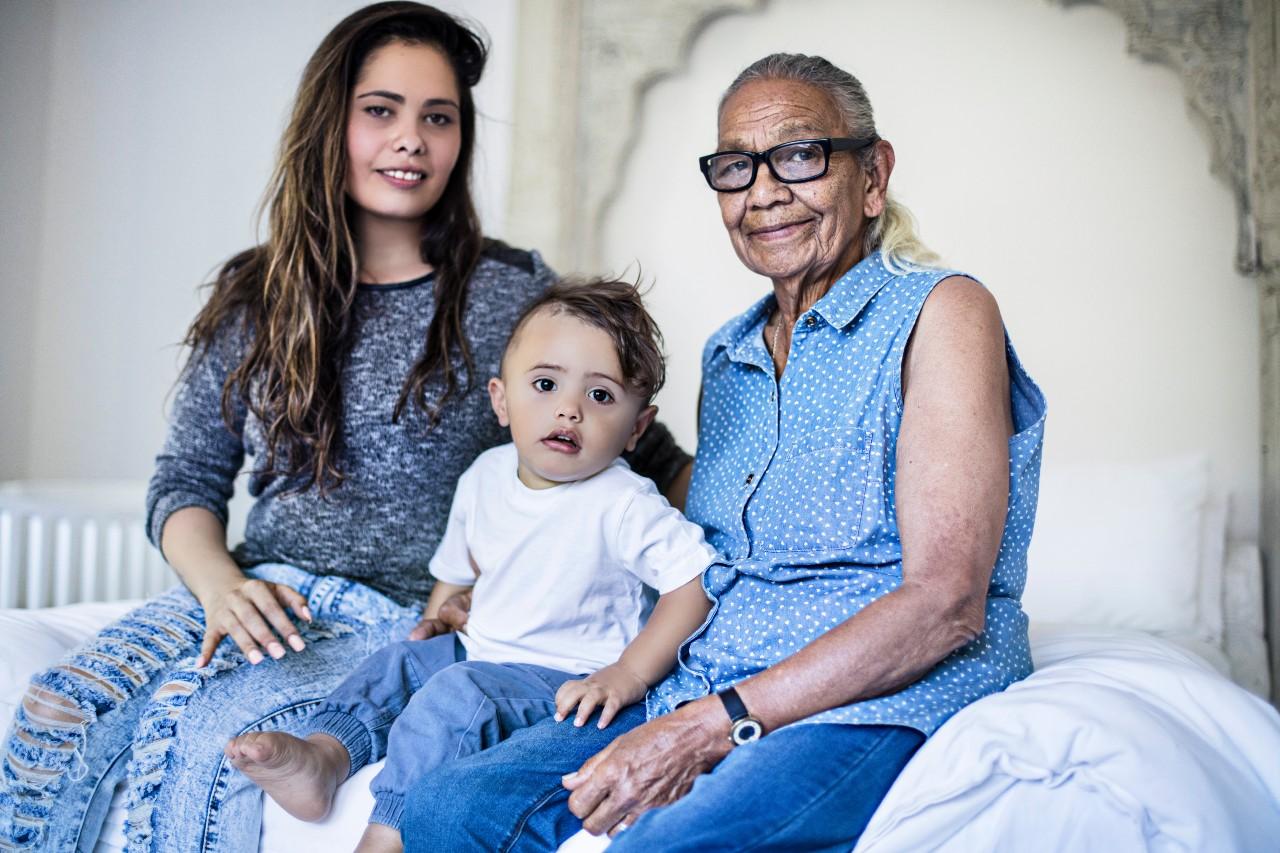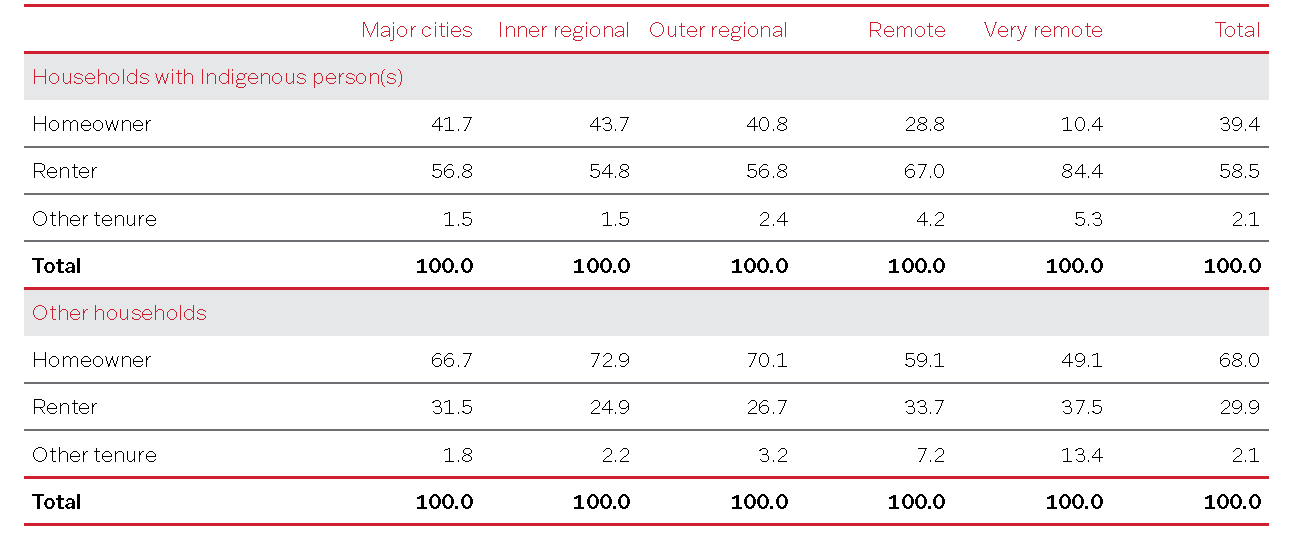
Indigenous Australians face considerable barriers to achieving successful housing outcomes
New AHURI research examines ‘what works’ when building stronger, sustainable Indigenous tenancies.
02 Mar 2022
- around 60 per cent of Indigenous Australians live in rental accommodation, compared to around 30 per cent of non-Indigenous Australians
- having the right staff to effectively deliver tenancy support services—in particular, the employment of local Indigenous staff—can build engagement and understanding of tenant circumstances
- developing effective linkages with broader health and community services assists tenants with any underlying issues that could impact upon their tenancy
With around 60 per cent of Indigenous Australians living in rental accommodation (compared to around 30 per cent of non-Indigenous Australians who rent) understanding what makes Indigenous tenancies work successfully is vital, new AHURI research has confirmed.
Table 1: Housing tenure by remoteness: Indigenous households, 2014–15 NATSISS
Sources: ABS 2016 Census of Population and Housing, online TableBuilder facility.
The research, ‘What works to sustain Indigenous tenancies in Australia’, explores the initiatives that have been successful in sustaining tenancies for Indigenous people and what particular elements contribute to this success, including for different types of housing—private and social housing—and across different locations—urban, rural and remote. The research was conducted by researchers from The University of Adelaide and Curtin University.
‘Indigenous people commonly experience both direct and indirect discrimination when searching for a property within the private rental market,’ says lead researcher, Dr Megan Moskos from The University of Adelaide. ‘This discrimination sits alongside a lack of affordable and culturally appropriate housing for Indigenous people as well as long waiting lists for public housing. The housing that is available to Indigenous tenants may not provide a good fit between cultural norms and ways of living, nor with regard to household size and composition.’
‘We identified that cultural differences between the way Indigenous and Western families use housing were not adequately accounted for in rental housing service provision and tenancy agreements,’ says Dr Moskos. ‘For example, the traditional responsibilities of Indigenous tenants to house extended family members when needed can conflict with the expectations of landlords around visitors and overcrowding, and thus threaten tenancy arrangements.’
Issues around communication and the ability of tenants to understand the implications of their tenancy agreements were also highlighted.
To find ‘what worked’, the research looked closely at three case studies in different regions of Australia and identified some common factors in successful tenancies:
- the way that services were delivered; central to this was the importance of having the correct policy settings that supported the programs in prioritising and responding to the circumstances of individual tenants was highlighted
- the staffing of the programs; having the right staff was a vital component of the success of the case-study programs. Staff with previous experience in community housing were considered to be valuable, as well as those who were willing to spend time with tenants and be flexible in the delivery of services to deliver positive housing and non-housing outcomes.
- linkages with other service providers (e.g. broader health and community services) enabled a joined-up approach to service delivery.
‘Successful tenancies are also helped by programs that work with all members of a household; allow for regular engagement; and have strengths-based program aims and ethos which seek to encourage and support Indigenous Australians to achieve their housing aspirations,’ says Dr Moskos.
Dr Megan Moskos will be presenting the research ‘What works to sustain Indigenous tenancies in Australia’ at the 2022 National Housing Conference session – ‘Meeting the housing needs of Aboriginal and Torres Strait Islanders households’ on Wednesday 2 March. Please visit the National Housing Conference website for more information.

